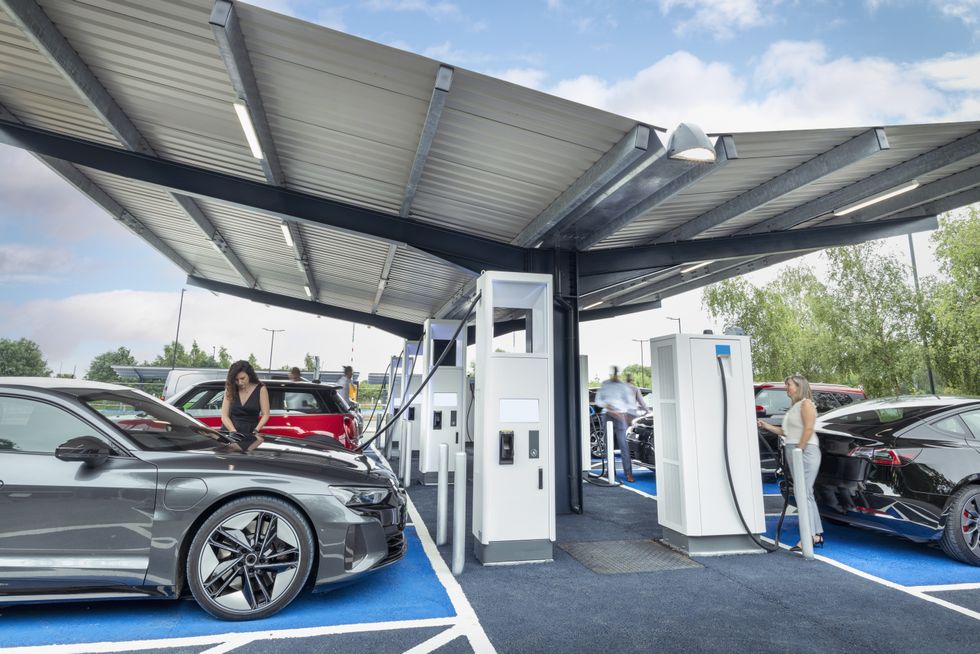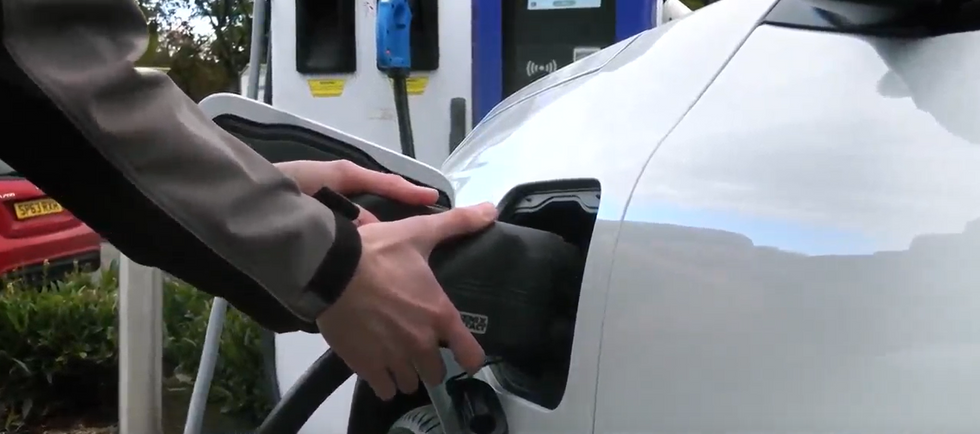Rachel Reeves to consider cutting all car tax breaks for drivers in bid to save £100m

Car tax breaks have been crucial in helping with electric car uptake
Don't Miss
Most Read
Labour could scrap tax breaks on electric cars for workers on salary sacrifice schemes as the new Government looks to claw back £100million.
The scheme which allows employees to lease electric cars with monthly instalments deducted from their pre-tax pay, has been crucial in supporting electric vehicle sales.
However, they are now under scrutiny for potentially benefiting wealthier households disproportionately with those on lower incomes left out.
The Treasury has reportedly discussed the financial impact of these schemes with the British car industry, with civil servants suggesting their removal of the tax cuts could generate up to £100million.
Do you have a story you'd like to share? Get in touch by emailing motoring@gbnews.uk

EV tax breaks have reportedly only benefited wealthier motorists
| GETTYThe move comes as Chancellor Rachel Reeves warns that those with the "broadest shoulders" will bear the largest burden in her upcoming Budget on October 30.
Salary sacrifice schemes have been credited with propping up EV sales during a slowdown in new car demand. But Resolution Foundation argued that these schemes disproportionately benefit higher earners, with top-rate taxpayers potentially receiving discounts of up to 62 per cent.
In contrast, basic rate taxpayers see a 28 per cent discount, while lower earners are often excluded due to minimum wage rules.
However, the British Vehicle Rental and Leasing Association disputes this stating that 52 per cent of salary sacrifice drivers are basic-rate taxpayers, with many working in the health and social care sector.
The schemes have become increasingly popular for households that might otherwise struggle to afford an EV, with eight out of 10 cars leased via salary sacrifice being electric.
Industry leaders have expressed concerns about the potential changes to salary sacrifice schemes.
James Court, chief executive of the Electric Vehicles Association, warned that removing the tax relief would be "hugely damaging" to achieving EV sales targets and carbon reduction goals.
He emphasised that salary sacrifice is "the one government policy remaining that helps working people bridge the upfront cost of EVs."
Toby Poston of the British Vehicle Rental and Leasing Association added: "The salary sacrifice market is a major success story and is central to the UK meeting its ambitious decarbonisation targets."
He said the scheme is "helping to democratise access to zero-emission motoring." However, the car industry argues that scrapping these incentives could hinder the transition to electric vehicles at a crucial time.
The Resolution Foundation has recommended encouraging EV uptake by raising taxes on petrol and diesel cars. They suggest that pre-announcing the withdrawal of salary sacrifice schemes could boost short-term EV demand as motorists rush to take advantage before expiration.
The foundation also highlighted the need to address the charging divide between those with and without off-street parking.
LATEST DEVELOPMENTS:
 The UK Government plans to have 80 per cent of new car sales be electric by 2030, rising to 100 per cent by 2035 | GB NEWS
The UK Government plans to have 80 per cent of new car sales be electric by 2030, rising to 100 per cent by 2035 | GB NEWSThe group proposed cutting VAT on public charging from 20 per cent to five per cent, matching home charging rates but this could cost the Treasury around £700million.
Additionally, the report emphasises the importance of rethinking discounted rail and bus fares to target those who may miss out on electrification savings.
On average, a new electric car costs about £12,000 more than its petrol counterpart, according to industry data.










